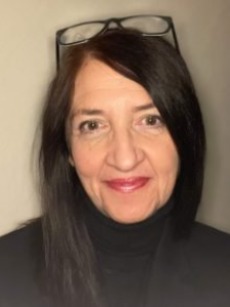Home Departments: French and Italian, Public and Applied Humanities
Co-Director of the Center for Educational Resources in Culture, Language, and Literacy (CERCLL)
SLAT Areas of Specialization: Instructional Dimensions of L2 Learning, Language and Program Administration Minor/Certificate, Technology in Second Language Teaching Minor/Certificate
Please note that Dr. Dupuy is on sabbatical for the 2022-2023 academic year.
Dr. Dupuy is a Professor of French and Applied Linguistics. She is co-director of the Center for Educational Resources in Culture, Language, and Literacy (CERCLL), a Title VI Center funded by the U.S. Department of Education. Dr. Dupuy’s research focuses on language teacher professional development, literacy-based approaches to teaching and learning, and on experiential learning as a theoretical and practical framework for language education in home and study-abroad contexts. Her research has appeared in Foreign Language Annals, the Canadian Modern Language Review, System, Applied Language Learning, the French Review, L2Journal. Dr. Dupuy’s book-length projects include a first-year French textbook, Français Monde: Connectez-vous à la Francophonie (Pearson/Prentice Hall, 2011), co-authored with Robert Ariew (University of Arizona) and A Multiliteracies Framework for Collegiate Foreign Language Teaching (Pearson Higher Education, 2015) co-authored with Heather Willis Allen (University of Wisconsin, Madison) and Kate Paesani (Wayne State University), which outlines a coherent pedagogical framework grounded in texts and the concept of literacy for college foreign language programs. In Fall 2015, she was awarded a Research Priority Grant (Co-PI Dr. Kristen Michelson, University of Oklahoma) by the American Council on the Teaching of Foreign Languages (ACTFL). Her colleagues Heather Willis Allen (University of Wisconsin, Madison), Kate Paesani (Wayne State University), and she, were contracted by ACTFL in Fall 2015, to produce a 7-webinar series based on their recent book. The series is entitled: Exploring Multiliteracies in Language Teaching (2016).


